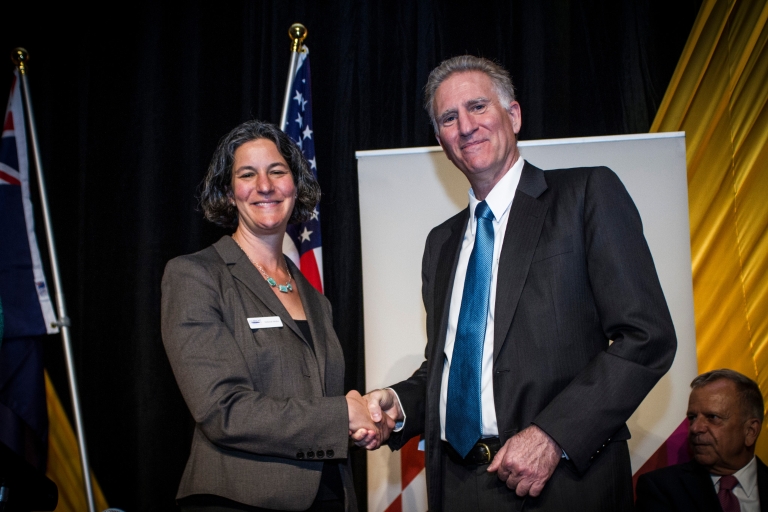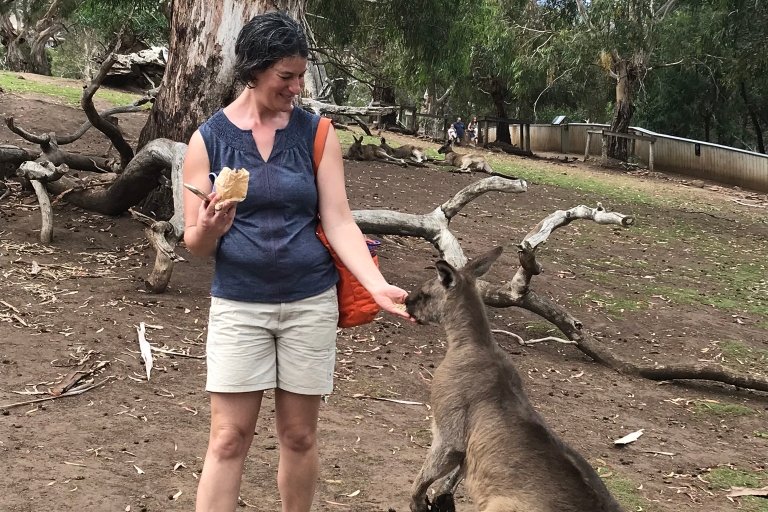Deborah Widiss, Australia
IU Maurer School of Law professor Deborah Widiss is spending the semester in Australia as a Fulbright Scholar researching the impacts of paid parental leave legislation.
IU Maurer School of Law professor Deborah Widiss is spending the semester in Australia as a Fulbright Scholar researching the impacts of paid parental leave legislation.
Deborah Widiss, professor and the Ira C. Batman Faculty Fellow at the Indiana University Maurer School of Law, first became interested in employment issues that face working parents when she was a practicing lawyer for a women's rights organization. At the time, there were two developed nations that didn't guarantee paid leave to new parents: the United States and Australia.
In 2011, Australia launched a paid parental leave program, leaving the U.S. as the only developed nation without a similar program. Now, as a Fulbright Scholar, Widiss is spending a semester down under observing how the nation is transitioning into its new policies.
One aspect of her research looks at the opportunity this new policy provides the Australian government to educate employers about what qualifies as unlawful pregnancy discrimination. Widiss said this is particularly important because there is a risk that providing generous leave can result in additional discrimination against women who are pregnant or may become pregnant. She hopes to bring back lessons learned from Australia to the United States.
 View print quality image
View print quality image
"These work-family challenges occur everywhere in the world, so there is a lot to be learned by looking to how other countries have tackled these questions and also sharing what we are doing in the States," Widiss said. "The U.S. is much less advanced in this area than other nations, so it can be important to make those global connections."
Widiss' host institution, the University of Melbourne, is a leader in this research field, and its Centre for Employment Labour Relations often hosts speakers and researchers connected to the area of study. The university's aggregation of law experts, social scientists and other academics to further this center could serve as a model for something similar at IU, according to Widiss.
"This is an area of research where there is a lot of strength at IU, but it's not bundled up," she said. "There are individuals in sociology, SPEA and Kelley who conduct similar research, and there could be an opportunity to make a more consolidated center for individuals and improve IU's reputation in the field."
 View print quality image
View print quality image
Spending a semester in Australia and in the Fulbright program will also allow Widiss to strengthen institutional relationships that may benefit IU students and colleagues. She's utilized IU's robust partnership with Australian National University and has been invited to give a presentation to law faculty and the Gender Institute at the university.
Through her research, Widiss has also discovered a network of labor laws that are not specific to working parents, like the fact that all Australian employees are guaranteed four weeks of annual paid leave. She's also discovered that the Australian government provides much more support for single parents with young children than the U.S. government does. Widiss said that all Americans can benefit from exploring how other nations enact policy in favor of employee work-life balance.
"I think that it's clear in the U.S. and in most countries that both men and women in families are working paid jobs because of both personal interest in doing so and because of economic realities and necessities," she said. "Finding out how to make it easier to mesh those responsibilities with family caregiving responsibilities is something that is critically important for all of us."
INDIANA UNIVERSITY NEWS & MEDIA
517 E. Kirkwood Avenuenewsroom@iu.edu
IUPUI NEWS & MEDIA
317-274-7711newsin@iupui.edu